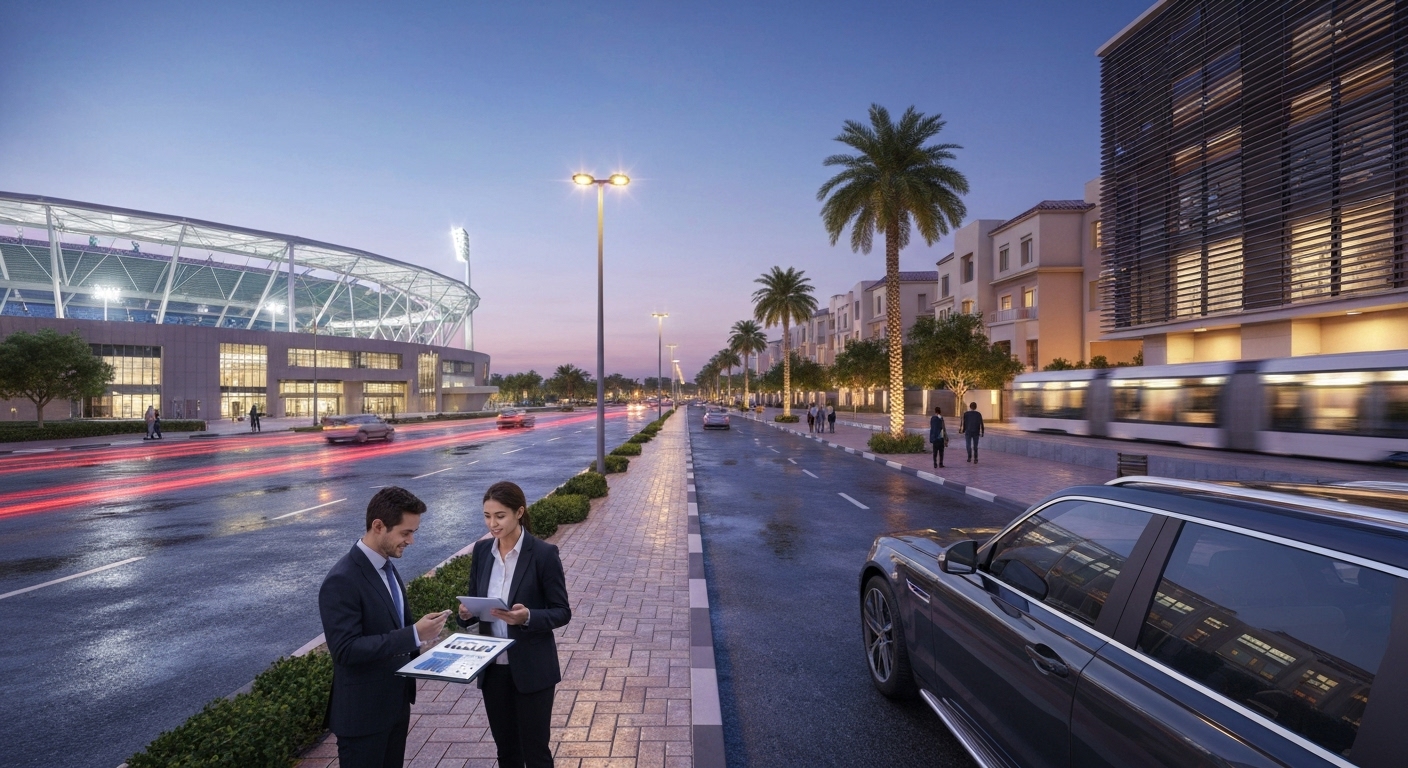If you are considering investing in Dubai’s property market, determining the future resale value of apartments in Dubai Sports City versus Motor City is vital for optimizing your ROI and aligning with local market trends. This article provides a comprehensive, investor-focused analysis comparing both districts, so you can make an informed decision that maximizes your long-term gains.
Understanding the Dubai Real Estate Market: Key Drivers of Resale Value
Dubai’s real estate market is influenced by several distinct factors, such as community amenities, proximity to business hubs, rental yields, and market price trends. For investors, resale value often hinges on an area’s growth trajectory, ease of accessibility, and the quality of life it offers residents. In a dynamic city like Dubai, these drivers can impact not only the appreciation rate of properties, but also their liquidity and ability to attract both tenants and buyers in the years ahead.
Rising infrastructure investment, government policies welcoming foreign ownership, and a cosmopolitan lifestyle have made Dubai one of the most vibrant property markets in the region. For specific districts, especially those offering affordable quality housing like Dubai Sports City and Motor City, a focus on future value is key due to growing end-user and tenant demand.
Dubai Sports City: Investment Profile and Future Resale Potential
Dubai Sports City has consistently attracted both investors and young families due to its active community lifestyle, range of sports facilities, and relatively affordable property prices. Recently, apartment prices here have risen, with two-bedroom units typically increasing from AED 875,000 to AED 900,000, reflecting growing demand and solidifying its reputation as a value-seeking investor’s hub.
This community is recognized for delivering high rental yields, with an average ROI of 7.9% for apartments—a robust figure in the current market. Its strategic location along key corridors, easy metro access, and nearness to lifestyle zones like Jumeirah Village Circle amplify its appeal to both tenants and eventual buyers.
Market Trends and Return on Investment
In Dubai Sports City, resale potential is further augmented by continuous upgrades in community infrastructure and planned enhancements. Ongoing events and sporting activities secure a steady stream of rental and resale interest, creating a resilient environment for price appreciation over the medium to long term.
Motor City: Investment Profile and Future Resale Potential
Motor City is renowned for its leafy avenues, low-rise architecture, and a laid-back suburban feel that appeals to families and professionals seeking serenity without sacrificing connectivity. While price points are generally competitive with Sports City, Motor City’s resale dynamics are shaped by its spacious apartment layouts and a unique lifestyle proposition built around pedestrian-friendly streets and lush landscaping.
While recent public data on ROI lags behind the readily cited returns for Sports City, Motor City’s long-term value can often be found in higher occupancy rates and a loyal resident base. As Dubai develops more towards suburbs and lifestyle communities, Motor City is well-positioned to benefit from sustained family-oriented demand.
Head-to-Head Comparison: Resale Value Factors in Dubai Sports City vs. Motor City
To evaluate the future resale value of apartments in Dubai Sports City vs Motor City, investors should weigh a blend of key factors:
– Current price levels and recent growth: Sports City has shown a marked increase in apartment prices for 2-bedrooms, currently ranging around AED 900,000, along with a strong historical ROI. Motor City’s values are competitive but may show steadier, rather than sharp, capital appreciation trends.
– Rental yields: Sports City reports a high average ROI of 7.9%, driven by sports-centric amenities and a young, active demographic. Reliable tenant demand makes this area attractive for both immediate rental income and future sales.
– Community features: Motor City’s tranquil suburban design and wide, green spaces attract a different demographic, which might translate to more stable but potentially slower price appreciation versus the dynamic growth seen in Sports City.
Beyond the Numbers: Lifestyle, Amenities, and Their Impact on Future Demand
Apart from hard numbers, future demand in both districts is affected by the overall lifestyle, available amenities, and neighborhood infrastructure. Sports City stands out for its world-class sports venues, active lifestyle appeal, and access to retail, dining, and recreation. Motor City’s charm comes from its calm ambiance, schools, parks, and a strong sense of community.
Both communities appeal to different end users, largely influencing resale cycles: Sports City attracts transients and young professionals, supporting high churn and quick resales, while Motor City’s base is more permanent, leading to reduced turnover but reliable long-term demand.
Expert Outlook: Long-Term Projections for Apartment Resale in Both Areas
Industry projections suggest that both communities are well-placed for long-term property appreciation as Dubai expands outward. Sports City’s relatively higher rental yields may continue to appeal to investors targeting strong year-on-year ROI, while Motor City’s slower, steadier appreciation suits buyers looking for capital security and stability.
Making Your Investment Decision: Which Community Aligns with Your Goals?
In conclusion, for investors focused on rental income and quicker resale, Dubai Sports City currently edges ahead with stronger rental yields and upward price momentum. Motor City offers stability and a solid family-oriented appeal, making it a compelling option for investors seeking slow, steady capital growth. Assess your risk appetite, target buyer profiles, and investment timeframe when choosing between these strong Dubai communities.
For a tailored investment strategy or more information, contact Danube Properties to learn more.




